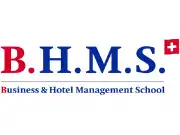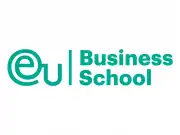Linguistics programs in Switzerland for international students
- Advantages of Studying Linguistics in Switzerland
- Formats and Levels of Linguistics Programs in Switzerland
- Top Universities for Linguistics in Switzerland
- How to Apply for Linguistics Programs in Switzerland
- Language of Instruction and Preparation for Linguistics Programs in Switzerland
- Tuition Fee for Linguistics Programs in Switzerland
- Scholarships and Grants for Linguistics Programs in Switzerland
- Career Prospects After Studying Linguistics in Switzerland
- Is It Worth Getting a Linguistics Education in Switzerland?
- Frequently Asked Questions

Certificate - Preparatory English Program
B.H.M.S - Business and Hotel Management School - Lucerne, SwitzerlandThe Program is provided at three different levels in order to ensure that students maximize their growth prior to beginning a full academic program.
The Preparatory English Program is an engaging class that emphasizes active learning in order to advance students' English speaking, listening,…

Certificate - English Foundation Program
EU Business SchoolThe English Foundation Program is not required to earn a degree from the European University. However, as an English-speaking institution, EU conducts all academic activities (including but not limited to lectures, exams, and written projects) in English. This customized curriculum will assist students…
Advantages of Studying Linguistics in Switzerland
Switzerland is rightfully considered one of the best countries in Europe for obtaining quality higher education. Linguistics programs are particularly popular among international students. The reasons are obvious:
- Multilingual environment: the country officially uses four languages – German, French, Italian, and Romansh, creating unique conditions for language learning and intercultural communication.
- High level of academic standards: Swiss universities consistently rank among the world's best educational institutions.
- International recognition of diplomas: graduates can successfully continue their education or build a career in any country worldwide.
- Diversity of programs: both theoretical directions (e.g., cognitive linguistics) and applied fields (translation, intercultural communication) are offered.
- Safety and high standard of living: Switzerland is one of the safest countries in the world with developed infrastructure and high quality of life.
Formats and Levels of Linguistics Programs in Switzerland
International students can choose from the following formats:
- Bachelor's (3 years): basic education with a focus on introduction to linguistic disciplines and studying several languages.
- Master's (1.5–2 years): narrow specialization, e.g., applied linguistics, translation, syntax and semantics, discourse theory.
- Doctoral (PhD): independent research work, participation in international projects, and publications.
- Short-term and preparatory courses: for improving language knowledge and preparing for admission.
Top Universities for Linguistics in Switzerland
| University name | Program name | Tuition fee for international students | Comment |
|---|---|---|---|
| University of Zurich (UZH) | Master in Linguistics | CHF 1,300 / semester | Top 3 universities in the country, 70th place worldwide (QS), strong research base in linguistics. |
| University of Geneva (UNIGE) | MA in Multilingual Communication | CHF 1,000 / semester | One of Europe's leading humanities universities with high concentration of international students. |
| University of Lausanne (UNIL) | MA in Linguistics | CHF 1,160 / semester | Leader in number of research projects in humanities. |
| University of Basel (UNIBAS) | MA in Language and Communication | CHF 850 / semester | One of Europe's oldest universities with focus on applied linguistics. |
| ETH Zurich | Language and Communication (Minor) | CHF 730 / semester | Country's best technical university, program focused on technical linguistics and communications. |
How to Apply for Linguistics Programs in Switzerland
Admission to linguistics programs includes several mandatory steps:
- Choosing a program and university.
- Preparing application documents:
- Passport (valid for entire study period + 6 months).
- School certificate or previous diploma with notarized translation (to English, German or French).
- Motivation letter or essay.
- CV.
- Language test results: IELTS (from 6.0), TOEFL iBT (from 80), less often – Duolingo.
- Recommendation letters (1-2)
- Additionally: portfolio of written works (if required).
- Submitting application: online via university website or centralized system.
- Interview (if required).
- Receiving confirmation of enrollment and applying for student visa.
It's recommended to submit documents 6–9 months before program start.
Language of Instruction and Preparation for Linguistics Programs in Switzerland
University programs are taught in English, German, French or Italian. Some courses are bilingual.
For successful admission to English-taught programs, an international exam (IELTS, TOEFL etc.) is required. Universities offer preparatory courses lasting 6 to 12 months that include:
- In-depth language study.
- Academic skills (essay writing, reading academic texts).
- Cultural adaptation.
Such programs are especially useful for those who didn't qualify for direct admission due to language level or academic preparation.
Tuition Fee for Linguistics Programs in Switzerland
Education at Swiss public universities is considered relatively affordable:
- Tuition fee: from CHF 730 to CHF 1,300 per semester.
- Housing: CHF 500–900 / month (depending on city).
- Food: CHF 300–500 / month.
- Study materials: CHF 100–200 / semester.
- Transportation: CHF 50–100 / month.
- Health insurance: CHF 100–150 / month.
Average annual expenses (including tuition and living): from CHF 20,000 to CHF 25,000.
Scholarships and Grants for Linguistics Programs in Switzerland
International students can apply for several scholarships:
- Swiss Confederation Federal Scholarships: for Master's and PhD; academic achievements are considered.
- University scholarships: UZH, UNIL and UNIGE offer partial or full coverage of tuition and living expenses.
- Private scholarships and corporate funds: finance students with excellent academic performance and active position in humanities.
Criteria include language level, academic performance, motivation and recommendations. Applications are typically submitted from October to January (for next academic year). Priority is given to candidates from CIS countries and India with high academic potential.
Career Prospects After Studying Linguistics in Switzerland
Education in Switzerland opens wide career opportunities:
- Professions: translator, research linguist, communications specialist, teacher, editor, international project manager.
- In-demand fields: IT companies, international organizations, NGOs, academia, tourism.
- Example employers:
- Swisscom
- Glencore
- International organizations in Geneva (e.g., UN, WHO)
- Universities and research centers
- Language startups and platforms
Many students complete internships during studies, facilitating employment after graduation.
Is It Worth Getting a Linguistics Education in Switzerland?
Switzerland offers unique opportunities for studying linguistics: high-quality education, multilingual environment and international prospects. Unlike other countries, it combines academic rigor, relatively low cost and safe student life. This is especially advantageous compared to destinations like the UK or US where costs and competition levels are higher.
Frequently Asked Questions
1. What linguistics programs are available for international students in Switzerland?
Universities in Zurich, Geneva, Lausanne and others offer Bachelor's, Master's and PhD programs in: applied linguistics, translation, intercultural communication.
2. How much does linguistics study cost in Switzerland for foreigners?
Average tuition fee – from CHF 730 to CHF 1,300 per semester. Additional living and insurance expenses amount to CHF 1,500–2,000 per month.
3. What language requirements exist for linguistics programs in Switzerland?
IELTS, TOEFL or Duolingo certificate is required (depending on language of instruction), level – from B2.
4. Can I get a scholarship for linguistics study in Switzerland?
Yes, state and university scholarships are available, including for students from CIS countries and India.
5. What are the prospects after completing linguistics programs in Switzerland?
Graduates work in international companies, NGOs, universities, engaging in translation, research and communications.